What You Need To Know
- Studies show American may not be as politically divided as it seems
- The spread of misinformation on social media has made it hard to know what news to trust
- Young Americans worry about the state of our country, but still have hope for the future
Christina Niggl is big on bringing people together. On a daily basis, the yard outside her Wilmington, North Carolina, home serves as a gathering place for neighbors to socialize and kids to play.
“If people walk by on the sidewalk, we can chat with them. If multiple of us are outside, there's just space for us to be,” she said. “Being seen, and being supported in our community, is really a wonderful thing.”
Niggl’s passion for togetherness has also given her a chance to build community with people she wouldn’t have expected – like Doc Hamm.
Hamm, a devoted husband and self-described serial entrepreneur, lives just across town; but politically, he is worlds apart. In November, Harris plans to check the box for Harris – Hamm, the one for Trump.
Sitting on a sofa across from Niggl, Hamm explained, “It’s foolish to keep doing the same thing and expect a different result. So maybe Trump will help us in some way, some fashion.”
Niggl and Hamm became friends through their local chapter of Braver Angels. It’s a nationwide organization founded in the wake of the 2016 election, and it aims to bridge deep political divides through conversation. In Braver Angels’ terms, Niggl is a “blue,” or liberal leaning, and Hamm is a “red,” conservative leaning.
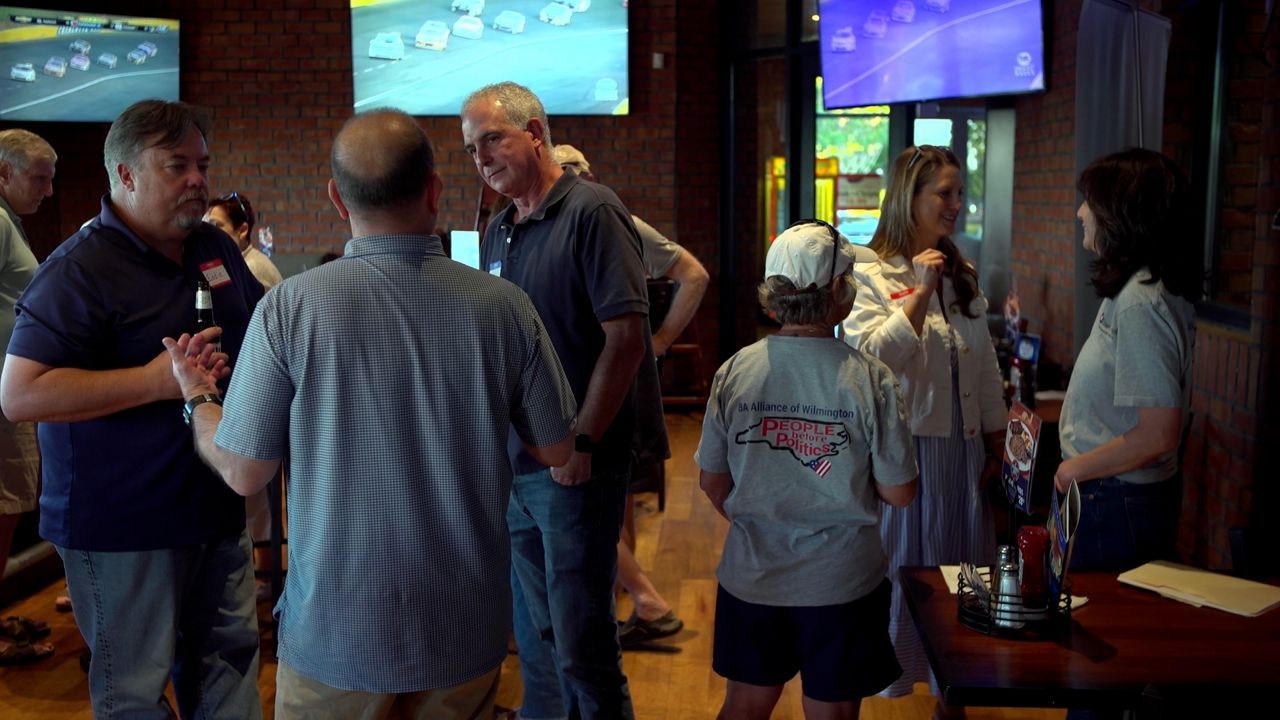
Niggl grew up in a Republican household, but as an adult, she found herself increasingly surrounded by people who thought like her.
“I feel like I got into an echo chamber where people would talk about, ‘oh, the Republicans are like this or that.’ And I thought, I know a bunch of really good people who are Republicans, and they’re not like that.”
The Braver Angels way is all about talking – even arguing – civilly. Niggl and Hamm say they’re trying to understand each other, not win a debate.
“I have conversations with Doc because I honestly appreciate his point of view,” Niggl said after discussing their views on the 2024 election.
Hamm agreed, explaining, “I respect her. I trust her. She’s going to do what she thinks is right.”
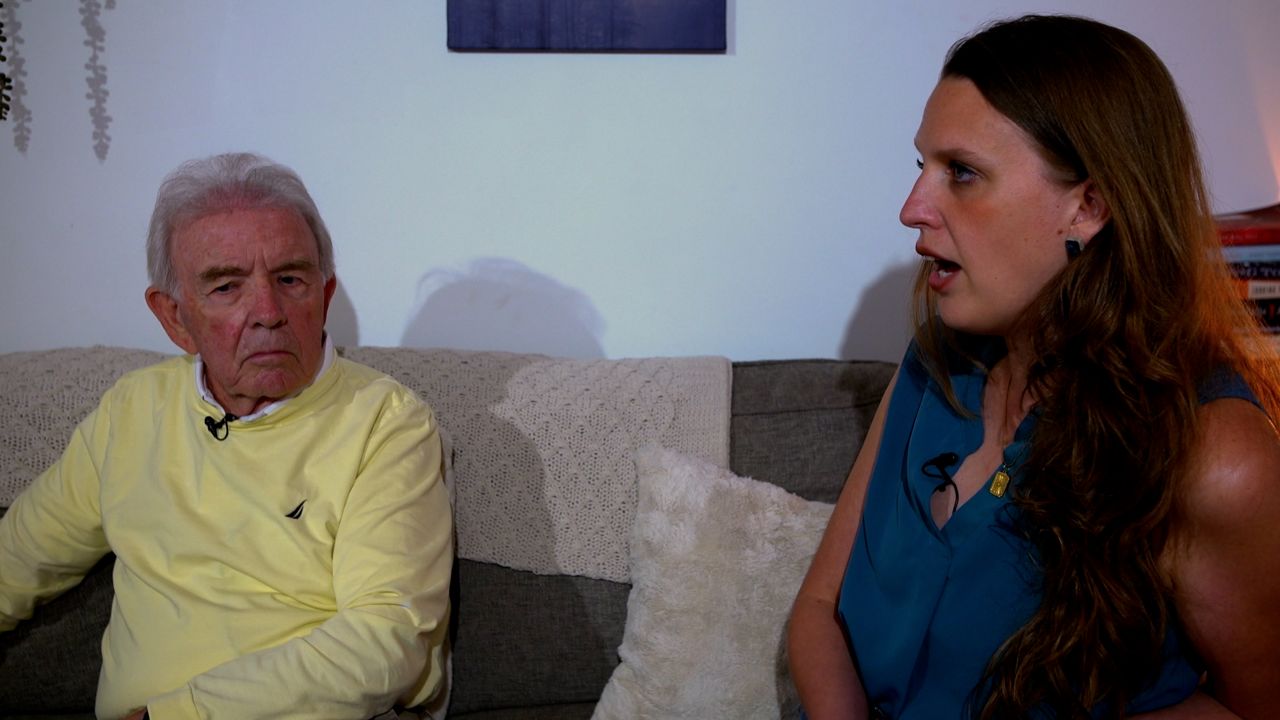
With today’s deep political divisions, many Americans would find it hard to believe that this type of respect and trust is possible.
“A lot of what we hear on the news and see on social media is just people who are on the extremes, and then it makes it seem like that's what everyone is like,” said social psychologist Rachel Hartman. “But that's not really true.”
A growing body of research on polarization indicates that getting along may be easier than we think.
A study by More in Common found that while that Republicans and Democrats think 55% of their opponents hold extreme views, but in reality, only 30% hold extreme views. Democrats and Republicans also tend to significantly overestimate how much the other side dislikes them.
“There are some negative attitudes, there are stereotypes. But people, we play it up in our minds a lot more than it actually is,” Hartman said.
Hartman said that simply realizing this can help people feel less divided; and groups that encourage discussion can help.
“The more common they can be and in more spaces, the more it creates this sense of like, no, there actually is discourse across the aisle,” says Hartman.
Braver Angels and other groups are doing bridge building work across the country, but it's particularly relevant in places like Wilmington, North Carolina, a city and a state that are notably politically mixed.
“It is about 50% conservative, 50% liberal here. It’s a hotbed for possible tension and political rancor,” said Nancy Cunningham, co-leader of Braver Angels’ Wilmington chapter, which they call an “alliance.”
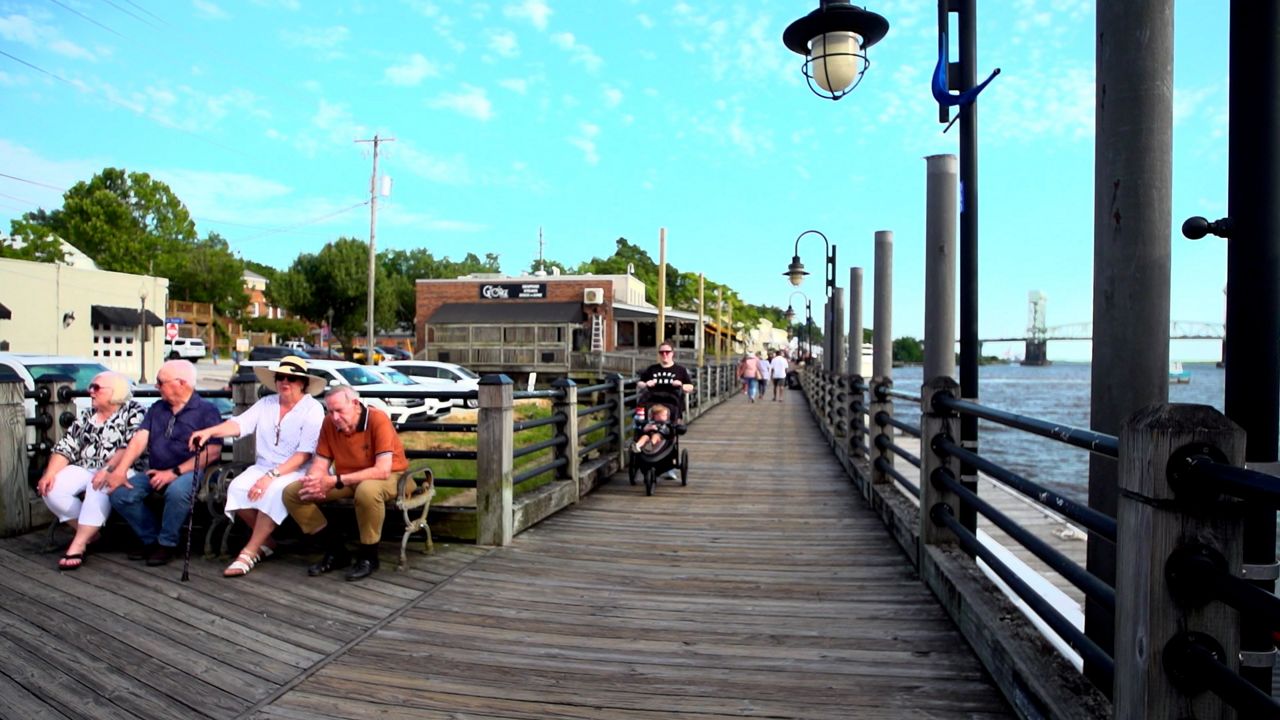
Her co-leader Eddie Jones added, “we have every nationality you can imagine, every different skin color, any different cultural background, and every income class.”
Cunningham, a “blue,” and Jones, a “red,” co-lead Wilmington’s Braver Angels alliance, one of the most active in the country.
They’ve known each other for a decade – Jones coached Cunningham’s two sons in lacrosse. But they didn’t talk politics until recently.
A little over a year and a half ago, Cunningham approached Jones about co-leading the group with her.
Jones, laughing, said he thought she was crazy. “I didn’t think it was going to work,” he explained.
He’s been pleasantly surprised.
“I was one of those people that was like, outspoken on social media about politics and what I felt was right and what I thought was wrong...it’s a big difference when I’m sitting across from somebody.”
Ever since, Braver Angels’ Wilmington alliance has hosted discussions, community service projects, and monthly socials at a local sports bar.
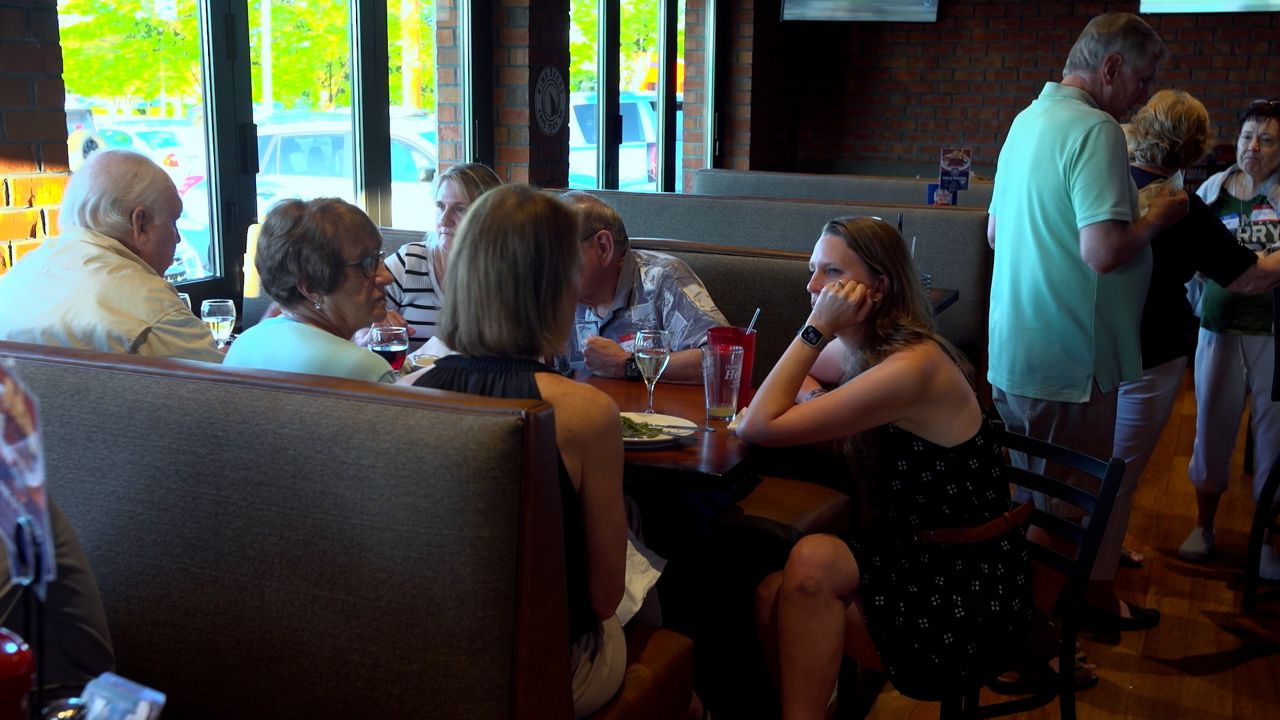
Things stay civil, despite tackling big disagreements and hot-button issues like immigration, abortion rights, climate change and January 6. Sometimes, Braver Angels members don’t even agree on the facts.
“It is true we're working on different facts right now, different realities, depending on your information sources. But what we're finding is we have the same values,” Cunningham said.
Jones added, “we find common ground on just about every topic before we leave the room.”
“You can see the relief in them afterward, to think that, ‘oh wow, that person that I was just demonizing because they were on the other side politically actually has reasons for why they think the way they do,'” Cunningham said.
Braver Angels sees its role as simply to facilitate conversation, not to fact check, even with claims proven to be false, like Trump’s assertions about the 2020 election.
“Are there people within Braver Angels who believe the election was stolen? Yes,” Cunningham said.
The way to deal with big disagreements, according to Cunningham, is to listen.
“The only way we can reconnect and to find out that the other person is a three-dimensional human being and not a label or stereotype is to allow for that, to allow the other person to believe something completely different than what you believe you know is true,” she said.
For Niggl, this work of breaking down barriers is deeply personal.
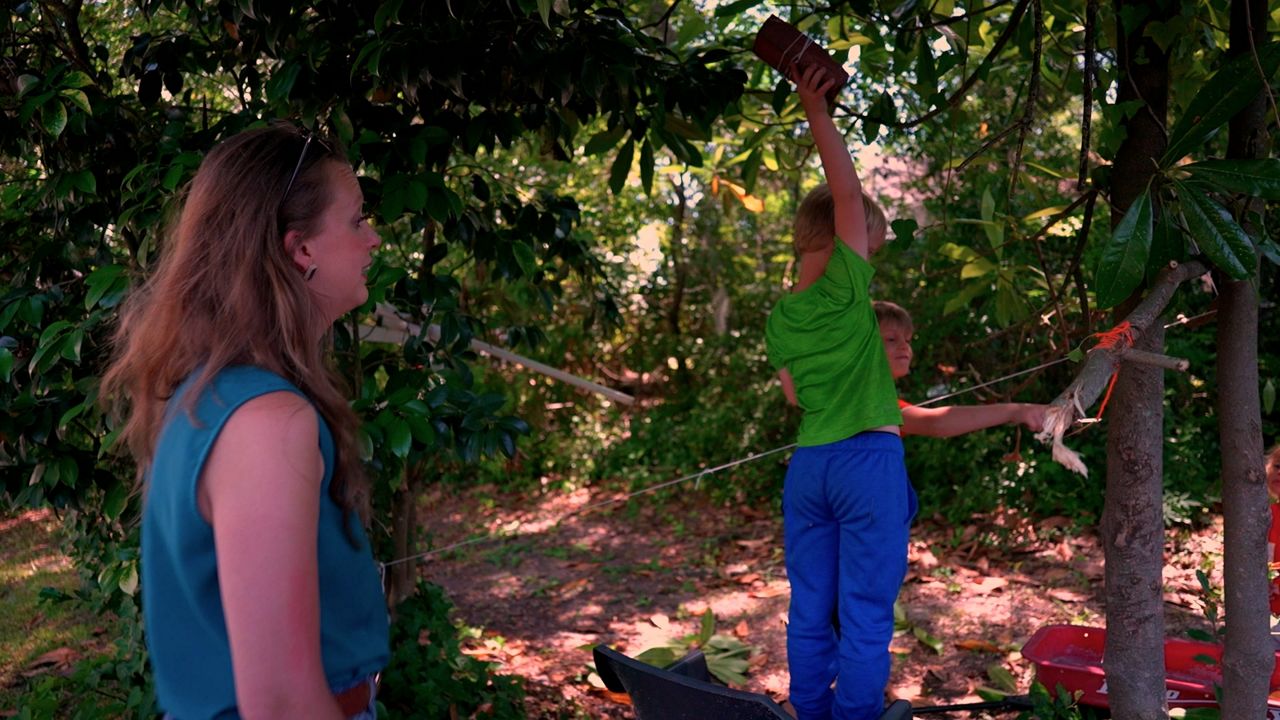
“There's a long line of service to our country in my family and my husband’s family,” she explained.
Niggl’s grandfather, father, and husband have served in the military. Her brother died serving in Afghanistan.
She says, “I feel like if they can give all of that to our country, the least we can do is sit in a room and talk and be together. And if that's what currently saves our republic, then we can all be here for that. That's such a little sacrifice to make.”



